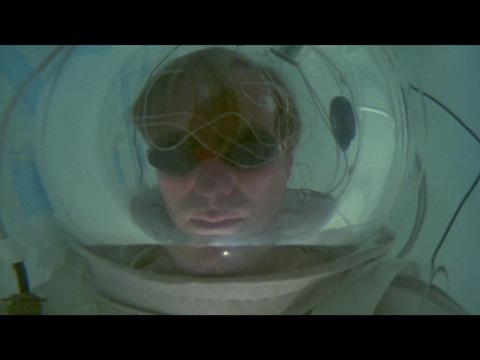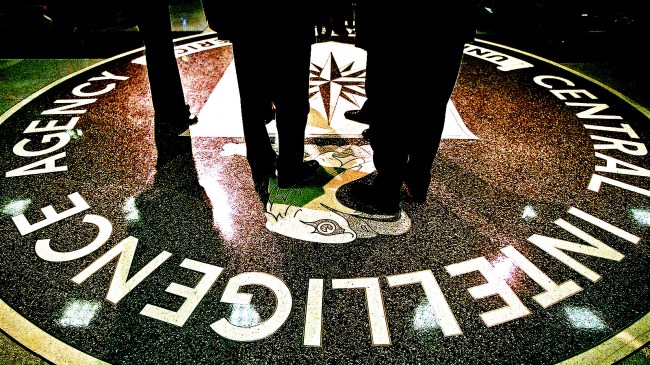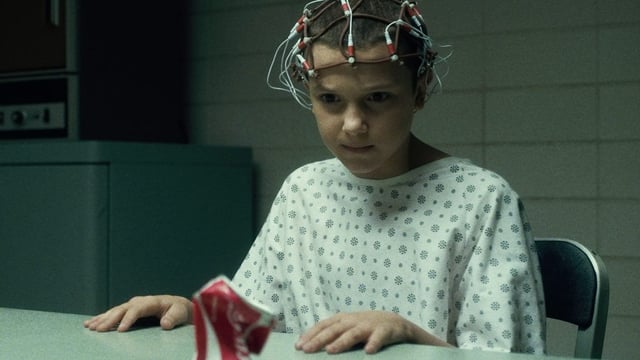MKUltra and the Ganzfeld: Peeking Behind the Veil of Perception

For decades, whispers have circulated about the MKUltra program, the CIA's clandestine and often brutal exploration of mind control. While the details remain shrouded in secrecy, declassified documents and anecdotal accounts paint a disturbing picture of researchers pushing the boundaries of human consciousness. Among the more unsettling aspects of MKUltra were experiments involving sensory deprivation, specifically variations of the Ganzfeld technique, and their alleged connection to inducing psychic abilities like remote viewing. Was this a genuine attempt to weaponize the paranormal, or a desperate grasp at scientific validation? Let's delve into the murky depths of MKUltra and its foray into the bizarre.
The MKUltra program, with its radiating lines, symbolizes the clandestine reach and manipulative goals of the CIA's mind control experiments.
The Sensory Deprivation Experiments: A Descent into the Void
The MKUltra program, launched in the early 1950s, aimed to explore the potential for controlling human behavior through various means, including drugs, hypnosis, and psychological manipulation. A key area of investigation was sensory deprivation, with the underlying hypothesis that reducing external stimuli could make individuals more susceptible to suggestion or unlock latent psychic abilities. One of the techniques employed was the Ganzfeld experiment.
The Ganzfeld procedure involves creating a homogeneous sensory environment. Typically, subjects would have their eyes covered with halved ping-pong balls, illuminated by a red light. White noise is fed through headphones, further minimizing auditory input. The idea is to reduce sensory "noise" and allow the brain to generate its own internal signals. Advocates believed this could enhance extrasensory perception (ESP).
 A sterile, unsettling depiction of a Ganzfeld experimental setup within an MKUltra facility. The bare bulb and vintage reel-to-reel recorder evoke the Cold War era atmosphere of these experiments.
A sterile, unsettling depiction of a Ganzfeld experimental setup within an MKUltra facility. The bare bulb and vintage reel-to-reel recorder evoke the Cold War era atmosphere of these experiments.
Declassified documents, while often heavily redacted, do hint at the application of sensory deprivation techniques within MKUltra. For example, some documents refer to "isolation studies" and "environmental control" used in conjunction with other experimental procedures. However, specific details about the extent to which the Ganzfeld experiment was utilized, and the precise protocols followed, remain elusive. Anecdotal accounts, though scarce and often difficult to verify, suggest that some subjects were subjected to prolonged periods of sensory deprivation in conjunction with other mind-altering substances or techniques. The goal, at least in theory, was to break down existing thought patterns and create an opening for new, externally imposed beliefs or even, supposedly, to enhance psychic abilities.
Expert Commentary: Science vs. Speculation
To understand the potential neurological impact and scientific validity of these experiments, I consulted with two experts: Dr. Anya Sharma, a neuroscientist specializing in sensory perception and altered states of consciousness (fictional), and Dr. Ben Carter, a parapsychologist familiar with Ganzfeld research (fictional).
"Sensory deprivation demonstrably alters brain activity," Dr. Sharma explained. "When deprived of external stimuli, the brain attempts to compensate by generating its own internal signals. This can lead to hallucinations, altered perceptions of time, and increased suggestibility. We see changes in brainwave patterns, particularly an increase in alpha and theta waves, which are associated with relaxation and altered states of consciousness. However, the leap from altered brain activity to verifiable psychic abilities is a huge one. Neurologically, there's no credible evidence to support that sensory deprivation can unlock ESP. The experiences reported are more likely the result of the brain misinterpreting its own internally generated signals in the absence of external reference points."
She further cautioned about the potential long-term psychological effects. "Prolonged sensory deprivation can lead to anxiety, depression, and even psychosis in vulnerable individuals. The lack of informed consent in MKUltra experiments makes the ethical implications even more disturbing."
Dr. Carter offered a different perspective. "The Ganzfeld experiment has been a staple of parapsychological research for decades," he stated. "Meta-analyses of numerous Ganzfeld studies have shown statistically significant results suggesting the possibility of ESP. While the effect size is small, it's consistent and warrants further investigation. Sensory deprivation, in this context, is viewed as a way to reduce 'noise' and allow subtle psychic signals to be more easily detected."
 A close-up of an eye reflecting static, symbolizing the altered perception and detachment experienced during sensory deprivation experiments.
A close-up of an eye reflecting static, symbolizing the altered perception and detachment experienced during sensory deprivation experiments.
However, Dr. Carter acknowledged the limitations. "The reproducibility of Ganzfeld experiments has been a challenge, and skepticism remains high. Many critics point to methodological flaws and potential biases in the research. The MKUltra experiments, with their lack of scientific rigor and ethical violations, are unlikely to provide any reliable evidence for psychic abilities. In fact, the trauma inflicted on subjects likely confounded any potential results."
The two experts agree on the alteration of brain activity caused by sensory deprivation, but they disagree on the possibility of induced psychic abilities. The experts do agree, however, on the unethical nature of the MKUltra experiments.
Ethical Considerations: A Dark Stain on History
The ethical implications of MKUltra are staggering. The program involved the use of unwitting subjects, often without their informed consent, and exposed them to potentially harmful and psychologically damaging procedures. The sensory deprivation experiments, in particular, raise serious concerns about the violation of human rights and the abuse of power. The lack of transparency surrounding MKUltra continues to fuel conspiracy theories and erode public trust in government institutions.
 A declassified MKUltra document, heavily redacted, highlights the secrecy and lack of transparency surrounding the program and its unethical experiments.
A declassified MKUltra document, heavily redacted, highlights the secrecy and lack of transparency surrounding the program and its unethical experiments.
Conclusion: A Cautionary Tale
The MKUltra program, and its exploration of sensory deprivation and alleged psychic phenomena, serves as a chilling reminder of the potential for government overreach and the dangers of unchecked scientific ambition. While the allure of unlocking the secrets of the mind and potentially weaponizing the paranormal is undeniable, the ethical costs are simply too high. The legacy of MKUltra is a cautionary tale about the importance of transparency, accountability, and respect for human dignity in the pursuit of knowledge. The enduring fascination with MKUltra stems not only from the government secrecy, but also from the primal human desire to understand the nature of consciousness, even if it means peering into the abyss.
 An abstract visualization of a brain with interconnected nodes, representing the complex neural networks and the uncharted territories of human consciousness explored within MKUltra.
An abstract visualization of a brain with interconnected nodes, representing the complex neural networks and the uncharted territories of human consciousness explored within MKUltra.
 A vintage reel-to-reel tape recorder, a symbol of the technology and methods employed in MKUltra experiments to monitor and potentially manipulate human subjects.
A vintage reel-to-reel tape recorder, a symbol of the technology and methods employed in MKUltra experiments to monitor and potentially manipulate human subjects.